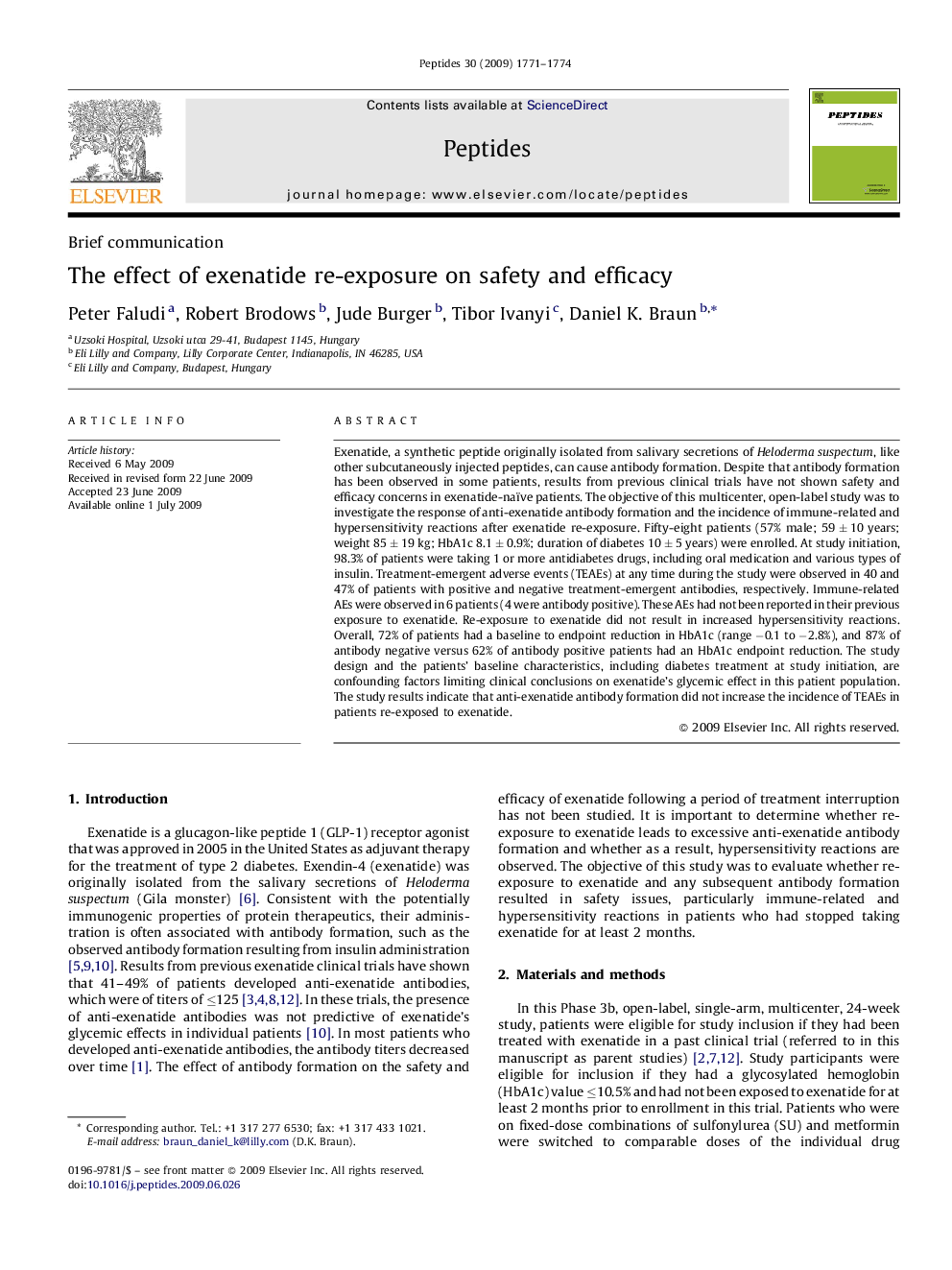| کد مقاله | کد نشریه | سال انتشار | مقاله انگلیسی | نسخه تمام متن |
|---|---|---|---|---|
| 2007105 | 1066363 | 2009 | 4 صفحه PDF | دانلود رایگان |

Exenatide, a synthetic peptide originally isolated from salivary secretions of Heloderma suspectum, like other subcutaneously injected peptides, can cause antibody formation. Despite that antibody formation has been observed in some patients, results from previous clinical trials have not shown safety and efficacy concerns in exenatide-naïve patients. The objective of this multicenter, open-label study was to investigate the response of anti-exenatide antibody formation and the incidence of immune-related and hypersensitivity reactions after exenatide re-exposure. Fifty-eight patients (57% male; 59 ± 10 years; weight 85 ± 19 kg; HbA1c 8.1 ± 0.9%; duration of diabetes 10 ± 5 years) were enrolled. At study initiation, 98.3% of patients were taking 1 or more antidiabetes drugs, including oral medication and various types of insulin. Treatment-emergent adverse events (TEAEs) at any time during the study were observed in 40 and 47% of patients with positive and negative treatment-emergent antibodies, respectively. Immune-related AEs were observed in 6 patients (4 were antibody positive). These AEs had not been reported in their previous exposure to exenatide. Re-exposure to exenatide did not result in increased hypersensitivity reactions. Overall, 72% of patients had a baseline to endpoint reduction in HbA1c (range −0.1 to −2.8%), and 87% of antibody negative versus 62% of antibody positive patients had an HbA1c endpoint reduction. The study design and the patients’ baseline characteristics, including diabetes treatment at study initiation, are confounding factors limiting clinical conclusions on exenatide's glycemic effect in this patient population. The study results indicate that anti-exenatide antibody formation did not increase the incidence of TEAEs in patients re-exposed to exenatide.
Journal: Peptides - Volume 30, Issue 9, September 2009, Pages 1771–1774